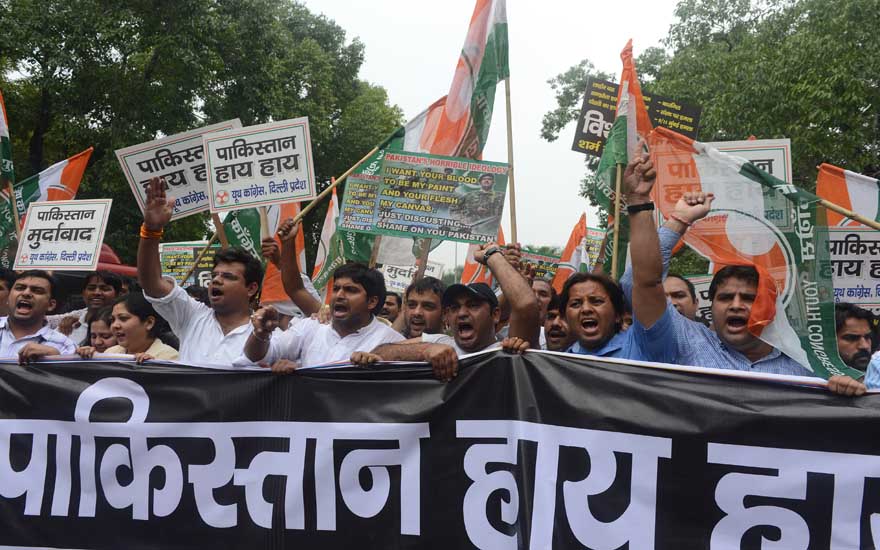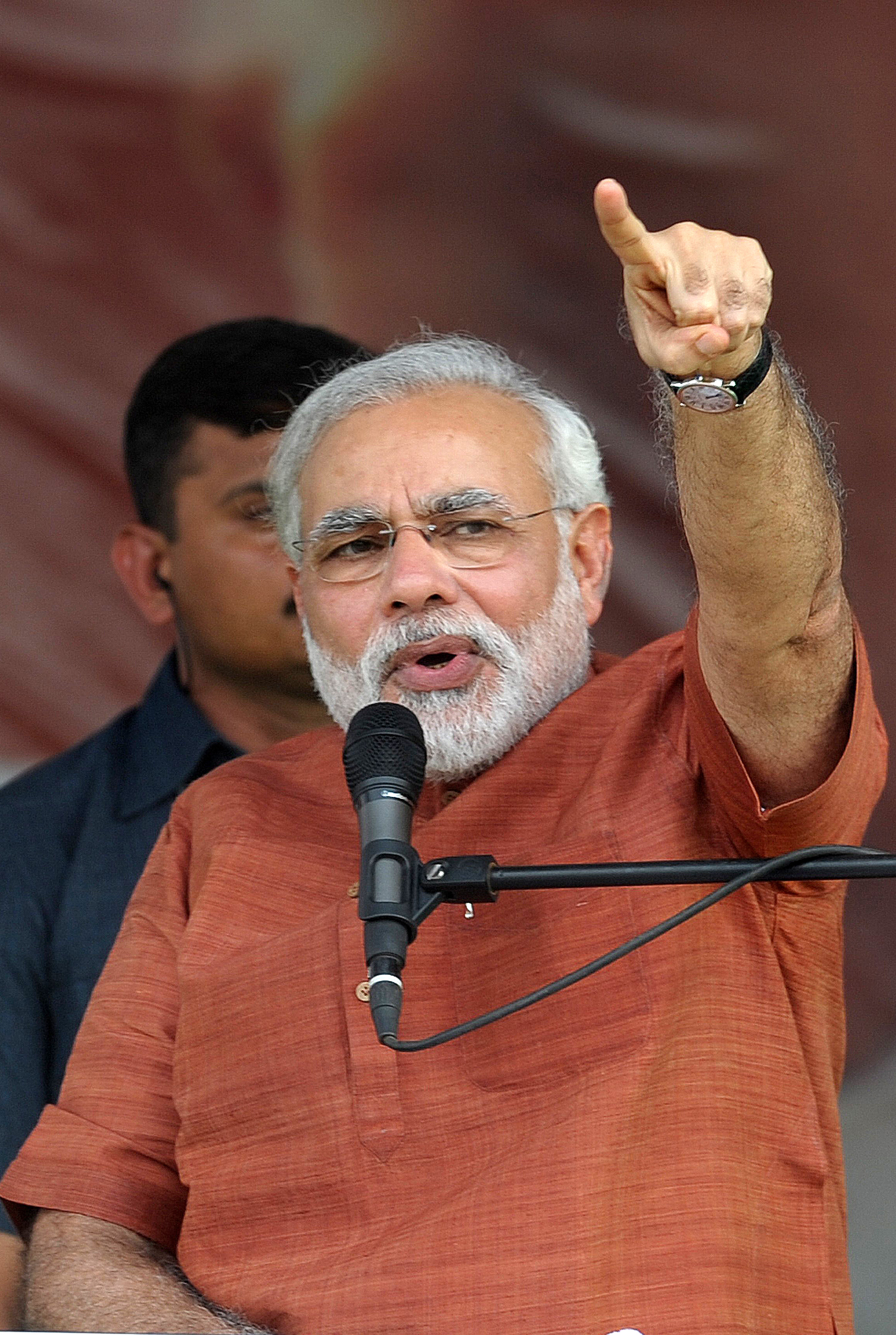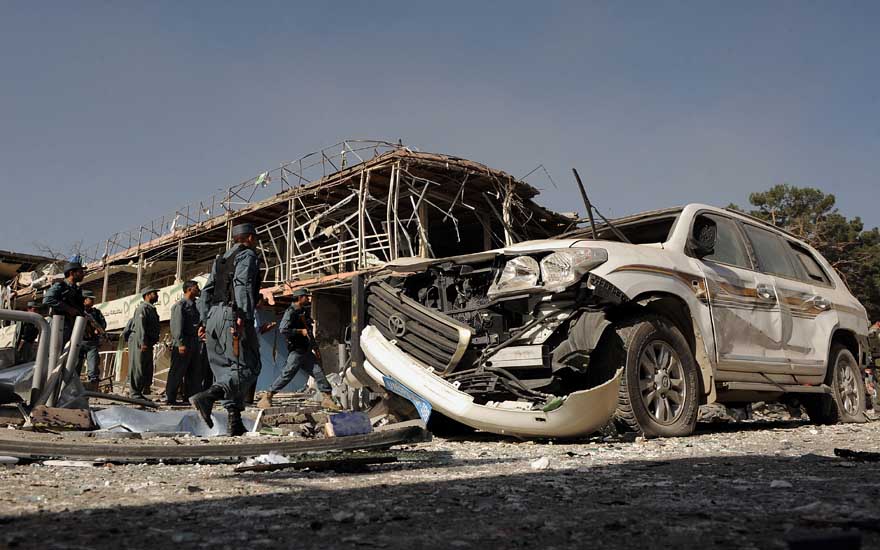Back to the Battlefield?
By Rahimullah Yusufzai | Cover Story | Published 11 years ago
It was in India that one first heard of the Border Action Teams that Pakistan has allegedly constituted to destabilise Jammu & Kashmir.
If the Indian Army is to be believed, the BATs, as they are now routinely referred to in India’s overly nationalist media, were formed by bringing together personnel from the Pakistan Army’s special forces and terrorists to launch attacks in Jammu & Kashmir and along the Line of Control (LoC). If true, Pakistan’s military authorities have done a remarkable job of keeping the existence of the BATs hidden not only from the parliament and the people, but also the country’s vibrant and probing media.

According to the Indian Army officers, the BATs in January killed two soldiers, including one who was beheaded, and another five on August 6 along the LoC in the Poonch sector. On both occasions, there was a frenzied reaction in India with the media leading the way in Pakistan-bashing. Demonstrations were staged outside the Pakistan High Commission in New Delhi not by the Hindu nationalist Bharatiya Janata Party (BJP) and its ideological partner RSS or the various militant outfits, but the ruling Congress party. An exhibition of 17 Pakistani artists, jointly organised with their Indian colleagues in Ahmedabad, was vandalised, protests were held at the PIA offices in India, exchange visits of delegations of traders and other professionals were called off and Pakistani diplomats in New Delhi complained of stepped-up harassment.
In comparison, there was muted reaction in Pakistan to the firing across the LoC and the deaths of some Pakistani soldiers and civilians. In fact, the impression one got in Pakistan was that the tension on the LoC wasn’t something unusual and would subside in due course of time.
The latest loss of Indian soldiers provoked a strong reaction from the Congress-led UPA government as it put on hold the peace process and suspended the composite dialogue with Pakistan. The Indian Army, having manoeuvred over the years to increase its clout vis-Ã -vis the elected civilian leadership in matters of defence, threatened adequate response against Pakistan at the time and place of its choice. Ominously, the Indian government announced that its armed forces had the freedom to respond appropriately to a developing situation. Some of the hawkish Indian politicians and strategic analysts suggested punitive strikes by the military across the LoC to make Pakistan pay for its acts of aggression.
The latest loss of Indian soldiers provoked a strong reaction from the Congress-led UPA government as it put on hold the peace process and suspended the composite dialogue with Pakistan. Some of the hawkish Indian politicians and strategic analysts suggested punitive strikes by the military across the LoC to make Pakistan pay for its acts of aggression.
Though occasional exchange of fire on the LoC has continued, there was no major escalation in the hostilities with both sides trying to keep the situation under control after having almost reached the brink. This is something familiar and more so after India and Pakistan became nuclear-armed nations and acquired the capacity to deter each other from going to war.
The LoC incidents happened when Pakistan’s new Prime Minister Nawaz Sharif and his Indian counterpart Manmohan Singh, serving the last months of his second term, were making efforts to chart a new and friendly course in their countries’ troubled relationship. All eyes are now fixed on the UN General Assembly in New York in September where the two prime ministers were expected to meet before the flare-up on the LoC. Nawaz Sharif is keen to hold his first meeting with Manmohan Singh after having won the May 11 general election. He earlier sent his special envoy Shahryar Khan to India with a message of goodwill to the Indian Prime Minister, who reciprocated warmly to the gesture. Despite Indian refusal, it is still possible that the two prime ministers would meet on the sidelines of the annual UN General Assembly session. There is no plan yet for a formal meeting, but a ‘chance’ encounter cannot be ruled out during the event.
However, Manmohan Singh is facing pressure from the opposition, the hardliners among the community of security and strategic analysts and most of the Indian media to not meet Nawaz Sharif in New York. A group of around 40 security experts, including many well-known figures, issued a joint statement advising him to avoid meeting Nawaz Sharif as it would amount to appeasement of Pakistan despite its provocative acts on the LoC and its refusal to bring to justice the perpetrators of the November 2008 Mumbai carnage. One of these experts, while requesting anonymity, told Newsline in New Delhi that the statement had more to do with the Congress-led UPA government’s blundering response to the cross-border raid by Pakistan Army-sponsored BATs in the Poonch sector of the LoC than the relationship with Pakistan. He was referring to Indian Defence Minister A. K. Antony’s initial statement in parliament in which he gave Pakistan the benefit of the doubt by saying that armed intruders wearing Pakistan Army uniforms had attacked the Indian Army’s patrol of six men and killed five of them. Under pressure from the opposition spearheaded by the BJP, he later changed his stance and directly blamed Pakistan Army for the killings by arguing that nothing can happen on the LoC without the facilitation of the Pakistani troops.
Meetings with Indian security analysts, retired diplomats, academics and journalists in New Delhi gave one an insight into their thinking about Pakistan. In their view, the Pakistan military was still calling the shots and was trying to rein in the Nawaz Sharif government before it makes any major departure from past policies with regard to India. They alleged that the army plotted the cross-LoC incidents as part of its plans to revive violence in Jammu & Kashmir. An Indian newspaper described it as army chief General Ashfaq Pervez Kayani’s last adventure in Kashmir before his retirement on November 28. References were made to the first suicide strike in three years that occurred recently in the Kashmir valley in which five security personnel were killed and an earlier attack by militants that took the lives of eight soldiers. They pointed out that the 2003 ceasefire was holding until now, but the 80 percent spike in LoC violations by Pakistan and the death of 48 Indian security personnel was evidence enough that concerted efforts were being made to make Jammu & Kashmir a violent place again.
State elections in some key states in the coming months and the general election next year are also the reason for a number of political parties, particularly the BJP, to raise the temperature and seek votes in the name of Hindutva or through Pakistan-bashing. The situation could deteriorate because the Gujarat Chief minister Narendra Modi, with his stock having risen after the 2002 anti-Muslim pogrom, is the frontrunner in the BJP to be picked up as the candidate for prime minister.
 The Indians are so convinced of their stance that they refuse to listen to any argument to the contrary from the Pakistanis. The denial by Pakistan of the LoC violations and any role by Pakistani army in the soldiers’ killings was termed ‘insensitive.’
The Indians are so convinced of their stance that they refuse to listen to any argument to the contrary from the Pakistanis. The denial by Pakistan of the LoC violations and any role by Pakistani army in the soldiers’ killings was termed ‘insensitive.’
Many Indian analysts argued that there was also a connection between the rising violence in Kashmir and the run-up to the post-2014 situation in Afghanistan when the NATO forces would have pulled out. They are saying that the militant groups were becoming emboldended due to the impending withdrawal of US-led forces from Afghanistan and looking at India as their next main target. Brig. (Retd) Gurmeet Kanwal expressed in an article that the LoC incidents and the attack on the Indian consulate in Jalalabad were sponsored by the ISI and were meant to send a message to India to reduce its involvement in Afghanistan. This line of argument is weak because the Afghan Taliban and even Al-Qaeda and some of their allied groups seldom showed any real interest in India and Jammu & Kashmir.
Their primary target and battlefield has always been Afghanistan.

Brig. (Retd) Gurmeet Kanwal expressed in an article that the LoC incidents and the attack on the Indian consulate in Jalalabad were sponsored by the ISI and were meant to send a message to India to reduce its involvement in Afghanistan. This line of argument is weak because the Afghan Taliban and even Al-Qaeda and some of their allied groups seldom showed any real interest in India and Jammu & Kashmir. Their primary target and battlefield has always been Afghanistan.
State elections in some key states in the coming months and the general election next year are also the reason for a number of political parties, particularly the BJP, to raise the temperature and seek votes in the name of Hindutva or through Pakistan-bashing.
Early opinion surveys months ahead of the polls showed that the BJP was ahead of the Congress. This gave the BJP an incentive to become even more hawkish, particularly on Pakistan. The situation could deteriorate because the Gujarat Chief minister Narendra Modi, with his stock having risen after the 2002 anti-Muslim pogrom, is the frontrunner in the BJP to be picked up as the candidate for prime minister.
Apart from the coming election campaign, other happenings in India that could affect the situation is the steep fall in the value of the Indian rupee, the weakening economy, the growing threat from the Naxalites and the rise of regional parties as power-brokers and kingmakers — not to forget the role of the intelligence agencies and the media. This became obvious when one watched the aggressive, anti-Pakistan coverage of the LoC incidents in the Indian print and electronic media. And the centrality of the secret agencies to the situation wasn’t hard to imagine when one fine morning the Delhi Police announced the capture of a 70-year-old Indian citizen, Abdul Karim Tunda, and accused him of being the mastermind behind 40 bomb explosions in India on behalf of the militant group Lashkar-e-Toiba. Arresting him at the height of the tension between India and Pakistan and using him to accuse the ISI of misdeeds was by no means a coincidence.
Rahimullah Yusufzai is a Peshawar-based senior journalist who covers events in the NWFP, FATA, Balochistan and Afghanistan. His work appears in the Pakistani and international media. He has also contributed chapters to books on the region.


